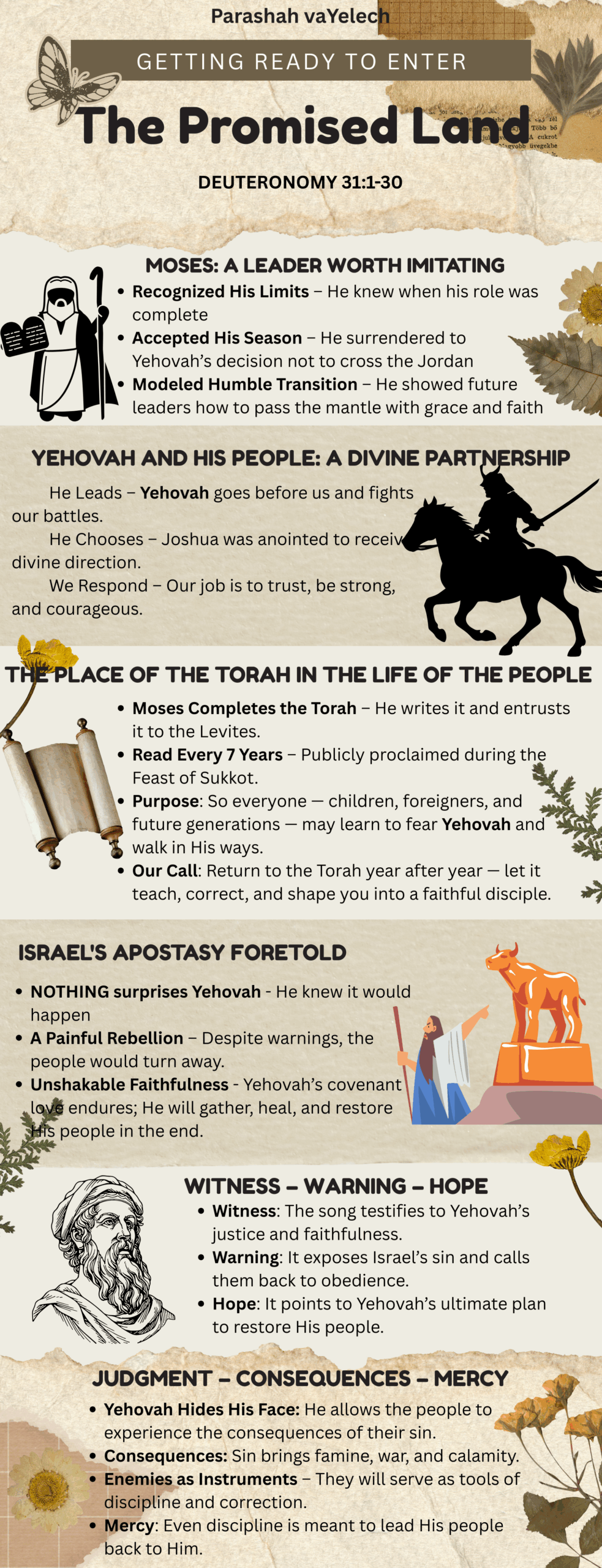Parashah vaYelech
Deuteronomy 31:1-30
The vaYelech portion (וַיֵּלֶךְ – “And he went”) places us at a crucial moment in Israel’s history. Moses, now 120 years old and at the end of his journey, speaks to the entire nation one last time. He reminds them that although he will not cross the Jordan with them, Yehovah Himself will go before them and fight on their behalf. Joshua is appointed as their new leader, symbolizing continuity and divine guidance.
This chapter is both intimate and prophetic. Moses writes down the entire Torah and entrusts it to the Levites, commanding that it be read publicly every seventh year during the Feast of Sukkot. This was meant to ensure that generation after generation—men, women, children, and even foreigners—would learn to fear Yehovah and walk in His ways. Moses also foresees that Israel will one day turn away, but the Torah will remain as a witness, calling them back to covenant faithfulness.

vaYelech teaches us that true courage is rooted in the presence of Yehovah. His words, “Be strong and courageous, for Yehovah your Elohim goes with you”, are just as relevant today as they were thousands of years ago. This truth invites us to face our challenges without fear, trusting that He is the one who fights our battles and leads us forward.
This parashah also challenges us to make Torah central in our homes and communities. We are called to read it regularly, teach it to our children, and let it shape our daily decisions. Just as Israel was commanded to renew their covenant every seven years, we too need to continually renew our commitment to Yehovah, letting His Word be a living guide that keeps us aligned with His will in every season of life.